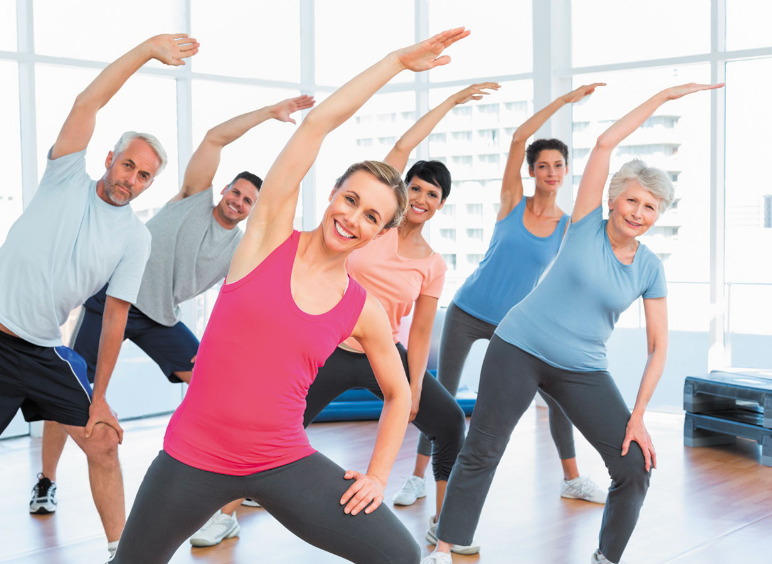Physical activities are essential to stay healthy and live longer. Working out regularly helps prevent diseases such as heart disease, diabetes, stroke, obesity, high blood pressure, depression and arthritis. Regular exercise also improves mental health. It increases energy levels and makes us happier.

Cardiovascular system
The cardiovascular system is the body’s pumping mechanism that moves blood throughout your body. This includes your heart, arteries, veins, capillaries, lungs, and other organs. When you work out, your cardiovascular system gets stronger, which means it can pump more blood with less effort. Your cardiovascular system will be healthier if you do moderate-intensity aerobic physical activity for at least 30 minutes a day on 5 days a week or vigorous intensity physical activity for 20 minutes 3 times per week. More intense physical activity is better than lower-intensity activity.
Immune system
Exercise stimulates the immune system. For example, you may notice that when you get sick after exercising, you feel much worse than before. Exercise strengthens the ability of white blood cells (immune cells in the blood) to fight infection. It triggers the release of chemicals called cytokines by muscles, which help control inflammation and stimulate healing.
Muscles
Exercise builds muscle strength and endurance, which make you less likely to fall down and injuries. These benefits improve mobility and balance, making it easier to stand up from sitting, walk, climb stairs, sit upright in chairs, and carry things. Studies have shown that even light doses of exercise can lead to greater bone density and increased muscle mass and strength. Muscle tissue contains protein fibers, hormones, enzymes, neurotransmitters, and oxygen that are needed for metabolism.
Respiratory system
Oxygen is essential for life. Exercise promotes good circulation of oxygen through the bloodstream, which delivers oxygen to all parts of your body. In addition, breathing exercises increase lung capacity, which leads to improved respiratory function.
Bones & joints
Exercise improves joint flexibility and range of motion. It reduces pain and swelling in the knees, ankles, hips, and back. It helps build strong bones and ligaments, which protects against osteoporosis later in life. It also keeps your skin flexible and supple, which prevents deep wrinkles and sagging of skin over time.
Digestive system
Exercise stimulates digestion. Moving your arms, legs, and abdominal muscles aids movement of food through your digestive tract. It also provides stimulation to nerves that affect how quickly food is processed and digested. You’ll pass gas during and immediately following anaerobic activity.
Mental health
Exercise can reduce symptoms of anxiety and depression. It raises serotonin levels in the brain, which makes people happy and contented. People who exercise often report feeling relaxed and refreshed. Exercising makes them feel like they’re taking care of themselves physically and mentally. They tend to sleep better and cope better with stress.
Weight management
Exercise burns calories, helping you achieve weight loss. Losing just 10 pounds or so can significantly decrease risk factors associated with cancer and heart disease.
Sex drive
Exercise boosts sex drive. Men gain lean muscle mass while working out, which contributes to erectile dysfunction. Women experience a natural surge of estrogen after exercise because of the added testosterone present in their bodies. This increases libido as well as vaginal lubrication.
Energy
Working out gives you energy. The act of moving your muscles creates a chemical reaction that generates energy. If you haven’t been active lately then try to start slowly and gradually work into more intense workouts. Start with gentle activities like walking and swimming until you reach your goal for overall physical fitness.
Balance
When you do any type of aerobic activity, such as walking, running, cycling, or dancing, your body must exert effort to keep your center of gravity stable. As your center of gravity shifts slightly forward, you need to quickly shift your weight backward to prevent falling. Improving your balance will help you avoid falls.
Heart
Cardiovascular exercise strengthens your heart and blood vessels. Regular exercise lowers cholesterol and blood pressure, both of which protect your heart. It also helps maintain healthy arteries and veins, lowering your chances of developing clogged or weak blood vessels. A sedentary lifestyle puts you at greater odds of high blood pressure, stroke, cardiovascular diseases, diabetes, and other chronic illnesses.
Conclusion,
It’s not all about weight loss. There are many benefits to doing something physical…and i would say “a lot” more than what we think.
